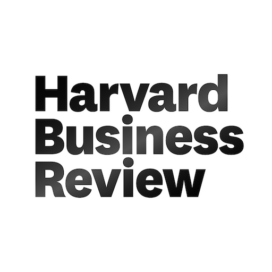New anti-inversion rules should reduce but not eliminate incentives to invert
Published: April 12, 2016 / Author: Carol Elliott

Corporate tax expert James Seida says the new U.S. Treasury rules issued April 4 will limit inversion activity, but ultimately fail to address the fundamental reason companies use to justify inversions.
Inversion is the process of re-incorporating a company overseas in order to reduce the tax burden on income earned abroad. Seida, associate accountancy professor at the University of Notre Dame’s Mendoza College of Business, co-authored a 2004 study of corporate inversions that uncovered evidence that the primary source of inversion-related tax savings, at least in the short run, was attributable to the stripping of U.S. earnings to tax haven countries via intercompany debt. Based on data from four inverted companies, Seida estimated that the lost tax revenue was about $700 million over a two-year period. Recent estimates put the projected tax revenue associated with halting recent inversions and modifying the tax rules at nearly $20 billion in the next decade.
The new U.S. Treasury rules limit the ability of U.S.-based firms to establish tax domicile in a foreign jurisdiction via merger-related corporate inversion, and also attempt to reduce the ability for all foreign firms, including inverted firms, to avoid U.S. income taxes via intercompany debt-related earnings stripping.
In new research, Seida finds that inverting firms have a long-term tax advantage compared to their domestic competitors. Seida co-authored the study, titled “The Long-Run Costs and Benefits of Corporate Inversions,” along with Stephen Lusch, assistant professor at the University of Kansas, and Luke Watson, assistant professor at the University of Florida — both graduates of the Notre Dame Master of Science in Accountancy program.
The researchers attribute the advantage to both a lower U.S. tax burden and to a lower foreign tax burden. The lower U.S. tax burden is consistent with inverting companies’ ability to strip U.S. earnings for sustained periods. The ability for inverted companies to avoid U.S. taxes over the long run provides them a competitive advantage over U.S.-based companies.
The revamped earnings stripping rules have the potential to reduce the tax advantage associated with inversions because the new Treasury regulations limit the advantage that foreign companies have with respect to reducing their U.S. tax burden through intercompany debt held by U.S. subsidiaries.
Despite the tax benefits from a corporate inversion, Lusch, Seida and Watson do not find evidence that the inverting firms outperform the U.S.-based competitors over the long term. The authors conclude that there are significant costs and risks associated with an inversion transaction that reduce the net benefit to inversion and might partially explain why inversions are relatively rare.
“If policymakers are serious about stopping inversion, the preferable long-term solution would be to end U.S. taxation of foreign earnings or lower the U.S. corporate income tax rate,” Seida says. “Such a change, coupled with the successful implementation of the new earnings stripping regulations, would severely reduce the tax incentives for companies to invert.”
Seida investigates how tax and non-tax considerations affect decisions by individuals and firms. He has published in The Accounting Review, Journal of Accounting and Economics, The Journal of the American Taxation Association, National Tax Journal, Tax Notes and Issues in Accounting Education. In 2003, he testified in front of the Senate Committee on Finance regarding the tax information Enron disclosed in its annual reports. His research has also been cited by the U.S. Treasury Department report on the taxation of international income. He formerly was a tax professional with KPMG.
Contact: James Seida, 574-631-9496, jseida@nd.edu
Related Stories




